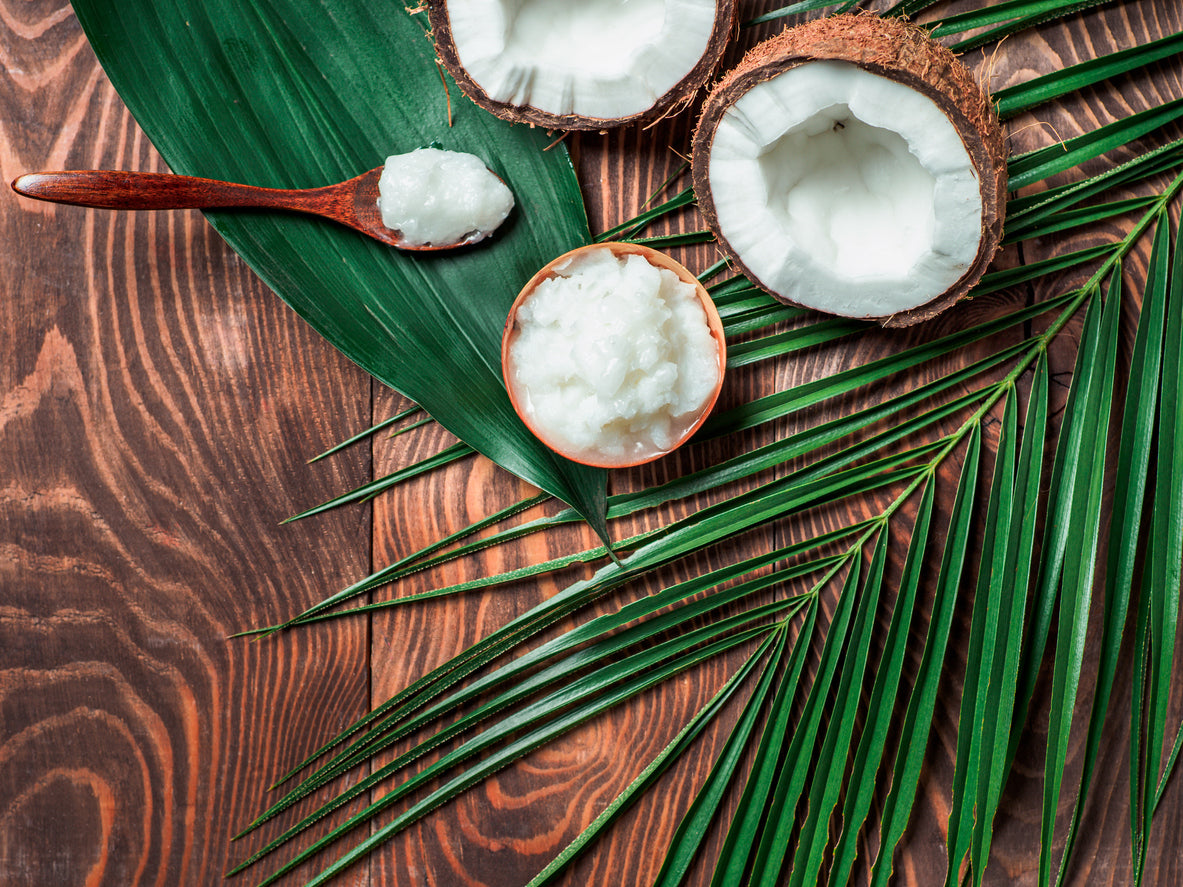“Chain” reaction - 3 ways that MCTs support your health

If you haven’t yet heard of “bulletproof” coffee, you likely will soon. Fans of this increasingly-popular drink - a mixture of freshly-brewed coffee, butter, and coconut-derived MCT oil – maintain that it can promote energy, increase cognitive function, help stabilize blood sugar, facilitate more effective workouts and support weight loss.
Experts agree that medium-chain triglycerides, or MCTs, are beneficial fatty acids that are easier to digest than the longer-chained fatty acids found in nuts, seeds, and avocados. But what about the “flashier” claims for MCT oil, such as increased energy, sharper wits, and leaner, more muscular silhouettes? Is there any scientific evidence behind these assertions? Or is it al l “hype?” Let’s look at the research.
Can MCTs promote healthier weight and metabolism?
There is some evidence that MCTs, in appropriate amounts, can help support a weight loss journey. While research is ongoing, one older study published in Pharmacological Research demonstrated that MCTs turn up a potentially fat-burning process known as thermogenesis while inhibiting body fat deposits. A separate study suggested that MCTs help reduce weight and waist circumference. MCTs are also believed to increase the release of leptin and peptide YY, hormones that help create a feeling of fullness.
And because they can be quickly absorbed without the help of pancreatic enzymes or bile, MCTs can positively affect the metabolism. They can also serve as a quick energy source that may lead to more effective exercise. Another "workout plus" for MCTs is their ability to reduce the lactate buildup that causes muscle fatigue. In addition, taking MCT oil may help people on ketogenic diets stay in ketosis - a fat-burning state - for longer. In fact, bulletproof coffee is sometimes known as “keto coffee.” Finally, MCTs encourage a healthy gut microbiome, which in turn promotes metabolic health and helps to prevent obesity.
MCTs may help regulate blood sugar levels
With over 26 million Americans currently affected by type 2 diabetes, there is a real need for natural interventions to help manage the condition. MCTs, believed to stabilize blood sugar by slowing down gastric emptying, may help fill this bill. Clinical studies on MCTs have been encouraging.
In an influential meta-analysis published in Pharmacological Research, the authors concluded that MCTs could help preserve insulin sensitivity in patients with type 2 diabetes. While more research is needed, it appears that MCTs can help manage blood sugar and prevent harmful “spikes.” If you have type 2 diabetes, ask your dietitian or integrative healthcare provider about adding MCT oil to your health regimen.
Support heart health with MCTs
MCTs, which have antioxidant properties, are believed to help lower harmful LDL cholesterol and reduce the oxidative stress that can lead to heart disease. In one study, overweight participants who took a formulation featuring MCT oil saw their total cholesterol drop by 12.5 percent - three times more than the reduction they experienced when supplementing with olive oil!
Other studies have shown that MCT oil can decrease inflammatory markers such as C-reactive protein, a compound implicated in heart disease. By reducing risk factors for cardiovascular diseases - such as obesity, inflammation, and unhealthy cholesterol - MCTs appear to be very heart-healthy.
MCT oil blends seamlessly with recipes
Both tasteless and odorless, MCT oil won’t affect the flavor of your food - and is easy to incorporate into your diet. In addition to adding it to coffee, you can use it in salad dressings, soups, baked goods, vegetable dishes, and more. You can also blend it into your favorite smoothie.
At a hefty 100 calories per tablespoon, MCT oil should be taken in limited amounts. Experts say that MCTs should make up no more than 5 to 10 percent of your daily caloric intake, with 4 to 7 tablespoons a day comprising the safe upper limit. It may be advisable to use MCT oil in place of another fat rather than simply adding it to your diet.
Start with half a teaspoon of MCT oil to avoid digestive disturbances such as nausea, diarrhea, bloating, and gas. And make sure to use a high-quality organic MCT oil from a reputable producer.
By the way, MCTs are found naturally in some foods. The best dietary sources are coconut oil (up to 65 percent MCTs), coconut milk, and coconut meat. MCTs also appear in full-fat, grass-fed butter and milk, along with various kinds of cheese such as feta and Parmesan.
While the MCTs in bulletproof coffee obviously can’t protect against actual bullets, it appears they really can help protect against obesity, high blood sugar, and heart disease. Maybe it’s time to put more MTCs “on the menu.”
Sources for this article include:






